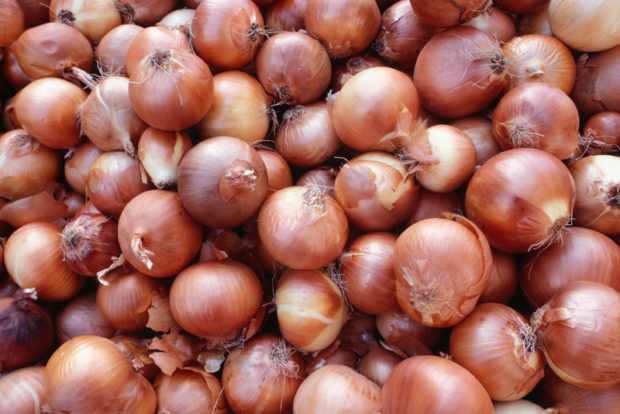MANILA, Philippines — The government warns online sellers of smuggled onions that charges might also be filed against them for enabling the proliferation of illegally sourced agricultural produce.
Rex Estoperez, deputy spokesperson for the Department of Agriculture (DA), advised consumers not to purchase onions being sold by online retailers.
“We are warning you not to sell smuggled onions because once you are caught, you will be considered an accomplice since we have evidence against you,” Estoperez said in a radio interview.
Estoperez also said the DA would revoke the permits of the retailers found guilty of selling this edible bulb in the markets.
“They are answerable to the Filipino people and our monitoring team. We can’t just let it pass. Will they be held accountable if consumers’ health was put at risk?” he said.
“Just a reminder: we are not responsible for the retailers who sell the smuggled goods in the markets if anything happens to you and when you buy or sell the onions in the markets,” he added.
Government agencies such as the DA and the Bureau of Customs have been inspecting various ports and warehouses, resulting in the confiscation of huge volumes of white onions.
The DA initially considered selling the confiscated white onions through the Kadiwa stores but eventually decided against it after phytosanitary tests revealed that the seized 100,000 kilograms of white onions contained E. Coli, making them unsafe for human consumption.
A phytosanitary analysis is conducted either at the country of origin or, in the case of smuggled items, upon their confiscation, Estoperez explained.
“Based on the analysis, [it is] not fit for human consumption because they might contain E. Coli according to analysts,” said Estoperez at the Laging Handa public briefing, adding these batches were not stored properly and some of these have already deteriorated and infested.
Although the government assured the public of an ample supply of onions, the DA noticed the continued spike in its retail prices.
